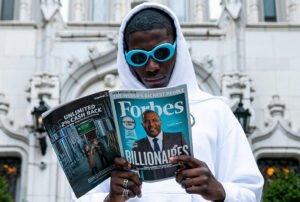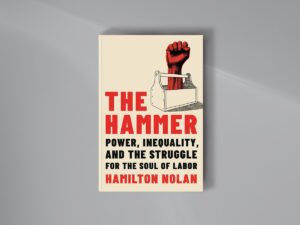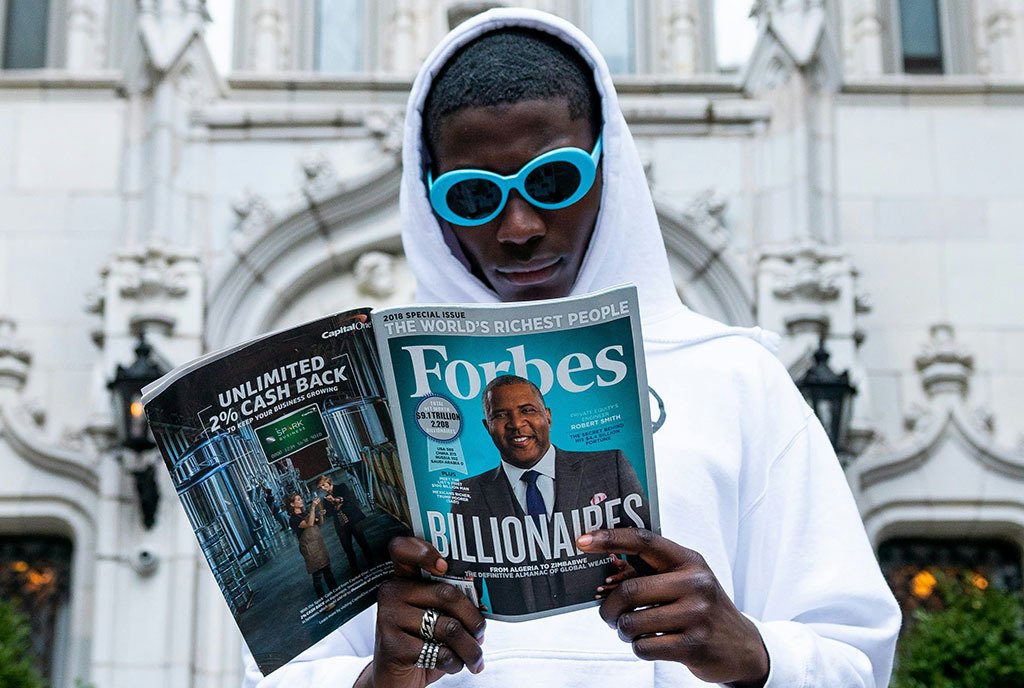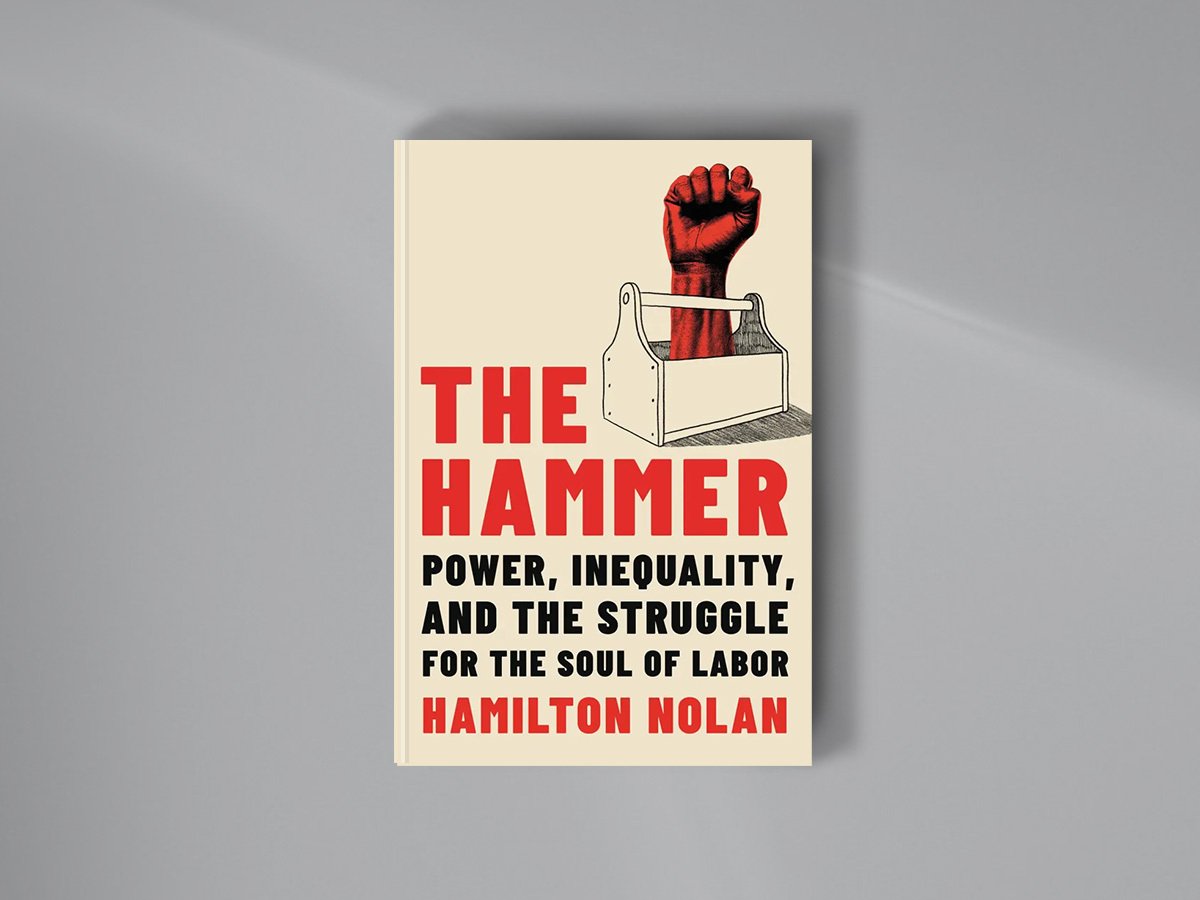
November 18, 2020; Common Dreams
The nation may have now lost over 250,000 lives to COVID-19, while over 12 million unemployed Americans face a looming year-end cutoff of benefits, but, even so, the last nine months have been quite good for a favored few. Despite spiking coronavirus infection rates, stay-at-home orders, and often drastic limitations on businesses, some are doing very well indeed. For example, Amazon had a market capitalization of $920 billion at the end of 2019. Today, it is worth $1.56 trillion, a cool $640 billion increase.
A newly published study, entitled Billionaire Wealth vs. Community Health: Protecting Essential Workers from Pandemic Profiteers, documents just how profitable the last months have been for some, even as others suffer.
The report, observes Brett Wilkins of Common Dreams, was a team effort “produced by Bargaining for the Common Good, the Institute for Policy Studies (IPS), and United for Respect and published in partnership with Action Center on Race and the Economy, Americans for Financial Reform, Jobs With Justice, New York Communities for Change, Step Up Louisiana, and Working Washington.”
The juxtapositions in the outcomes for CEOs and workers can be pretty astonishing. Here are a couple of cases:
Tyson Foods
- Rise in net worth of CEO John Tyson: $600 million
- Estimated number of workers infected with COVID-19: 11,000
Amazon
- Rise in net worth of CEO Jeff Bezos: $70 billion
- Estimated number of workers infected with COVID-19: 20,000
Faced with numbers like these, the report authors do not mince words: “We are witnessing a criminal tragedy as wealthy billionaires, sequestered in protective bubbles and private jets, are dispatching essential workers into the line of infection fire with inadequate shields and protections.”
Although businesses deemed “essential” under pandemic conditions have flourished, the workers who made sure those businesses remained open have not fully shared in the economic benefits showered upon CEOs and shareholders. The report’s authors take note of the 33 new billionaires that have arisen in the US since March and observe, “As of November 17, 2020, the wealth of 647 US billionaires has increased almost $960 billion since mid-March, the beginning of the pandemic.” It’s worth noting that this $960 billion increase is on a $2.947 trillion base. In other words, billionaire wealth has climbed 32.5 percent.
According to the report, ten billionaires with a combined wealth of $433 billion “have seen their wealth increase $127 billion since the beginning of the pandemic, in mid-March, a 42 percent increase.” Those ten are “Jeff Bezos (Amazon), Alice, Rob and Jim Walton (Walmart), Apoorva Mehta (Instacart), John Tyson (Tyson Foods), Steve Schwarzman (Blackstone), Henry Kravis and George Roberts (KKR), and Steve Feinberg (Cerberus).”
While their employers saw strong profits from being able to remain open, employees saw little change:
Sign up for our free newsletters
Subscribe to NPQ's newsletters to have our top stories delivered directly to your inbox.
By signing up, you agree to our privacy policy and terms of use, and to receive messages from NPQ and our partners.
Many frontline workers have faced furloughs or have been laid off. The measly hazard pay that some companies briefly put in place in the spring has long since expired and few essential workers have access to paid (or unpaid) sick leave, time off or health insurance. Personal protective equipment provisions and other measures put in place to protect workers are urgently needed.
The economic realities of “essential workers” are reinforced by testimony from some of the employees of these enterprises. Kenya Slaughter, who works the register at Dollar General, says she knows her store’s revenue has “practically doubled since the coronavirus hit. But we workers haven’t gotten any extra money, even though we’re risking our health, and our families’ health, to keep the stores running.” Although she received two hazard-pay bonuses earlier in the pandemic (totaling under $700), the money was insufficient. “The bonuses don’t even compensate me for the time I spend cleaning myself and my clothes after work, so I don’t get my family sick. It doesn’t come close to fair compensation for the risks we’re taking.”
The report concludes that much of this new pandemic-generated wealth could be shared with little harm to the billionaire class. Amazon CEO Jeff Bezos “could have paid each of Amazon’s 876,000 employees a $105,000 bonus and would still be as wealthy as he was at the onset of the pandemic. Invested over 25 years at a six-percent interest rate, this bonus would increase to $450,000 in retirement savings for each employee.”
Of course, the CEO of Walmart sees no need to share profits in this way; the ironically named Doug McMillion says higher pay would diminish “why our people are coming to work. When I talk to them, they’re not coming to work because of that, they’re coming to work because they want to serve.” That is easy for him to say, given that in 2018 he earned 1,118 times as much as the median salary of a Walmart associate.
Responding to a request from US Senator Bernie Sanders (I-VT), the US Government Accountability Office examined data covering those of working age enrolled in Medicaid and the Supplemental Nutrition Assistance Program (SNAP). They found that “approximately 70 percent of adult wage earners in both programs worked full-time hours (i.e., 35 hours or more) on a weekly basis and about one-half of them worked full-time hours annually.”
“An estimated 72 percent of wage-earning adult Medicaid enrollees and food stamp or SNAP recipients in 2018 worked in the five industries” with the highest concentrations of low-wage workers.” These are the workers who became “essential,” whose work fueled wealth for their employers but who remain disadvantaged and struggle to provide for themselves and their families.
Meanwhile, those whose jobs have not returned are about to see things get worse, not better. According to a study published by the Century Foundation, 12 million workers will lose benefits when funding expires on December 26, 2020.
Before COVID-19, we knew the growing wealth gap was leaving people behind, that the public safety net was frayed, and too many were falling through into lives of poverty and despair. The pandemic has only made these conditions worse.—Martin Levine













